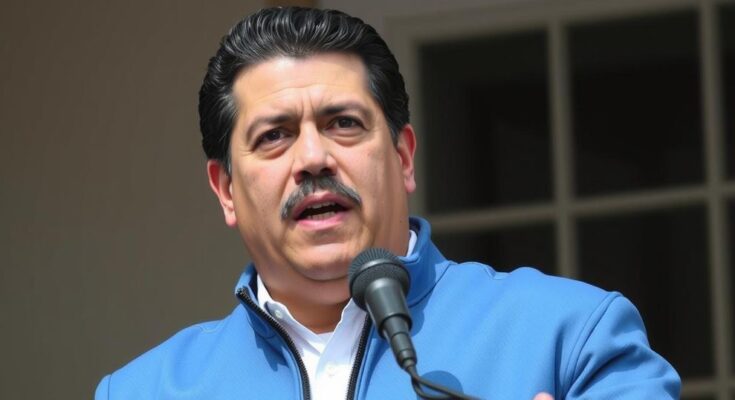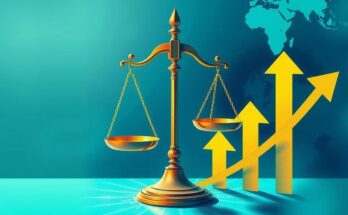Nicolás Maduro was sworn in for a third term as Venezuela’s president after disputed elections. The opposition, backed by the international community, contests the electoral results, claiming Maduro lost. Tensions escalated with the brief arrest of opposition leader María Corina Machado, while international organizations express growing concerns over human rights abuses in the country.
Nicolás Maduro has officially commenced his third term as president of Venezuela, despite the contentious backdrop surrounding the results of the July elections. On Friday, he took the oath of office before the National Assembly, expressing his commitment to fostering a “period of peace” and prosperity during his term. International observers, including the governments of Brazil and Colombia, have largely dismissed the election results, asserting that Maduro lost to opposition candidate Edmundo González, who was subsequently recognized by several nations as the rightful president-elect.
The inauguration occurred amidst escalating tensions as opposition leader María Corina Machado was briefly detained ahead of a protest rally, prompting outrage within the opposition and international community. Information Minister Freddy Nanez characterized the reports of her arrest as a “media distraction,” although her allies maintain that she was violently apprehended in Caracas. Maduro, on the other hand, proclaimed that his new administration will stand for peace, equality, and democracy, insisting on the legitimacy of his victory as affirmed by the National Electoral Council, an institution accused of bias.
González, the opposition figure who left the country after the elections, has been actively campaigning for support across the Americas. Meanwhile, Machado, who was barred from participating in the elections, has faced increased scrutiny and threats, resulting in her retreat from public visibility. The United Nations has voiced serious concerns over reports of arbitrary detentions and widespread intimidation of opposition members, drawing attention to the recent kidnapping of press freedom advocate Carlos Correa.
Maduro’s swearing-in highlights the ongoing political crisis in Venezuela, further complicating the nation’s future amid claims of electoral fraud, repression of dissent, and deteriorating human rights conditions.
The political situation in Venezuela has been fraught with tension since Nicolás Maduro first assumed the presidency. His administration has consistently faced allegations of electoral impropriety, particularly during the July elections, which were marked by international condemnation and claims of illegitimacy. The opposition, led by figures such as Edmundo González and María Corina Machado, has mobilized against Maduro’s regime, seeking to challenge his authority and restore democratic governance. The United Nations has also identified significant human rights violations, contributing to Venezuela’s worsening political and social environment.
In conclusion, Nicolás Maduro’s inauguration for a third presidential term underscores the contentious political landscape in Venezuela. Despite claims of electoral victory, both national and international opposition continue to dispute the legitimacy of his presidency, advocating for the recognition of alternative leaders such as Edmundo González. The crackdown on dissent, including recent arrests and intimidation tactics, further exacerbate the crisis, leaving the country’s future unresolved amidst ongoing calls for political reform.
Original Source: www.bbc.com




